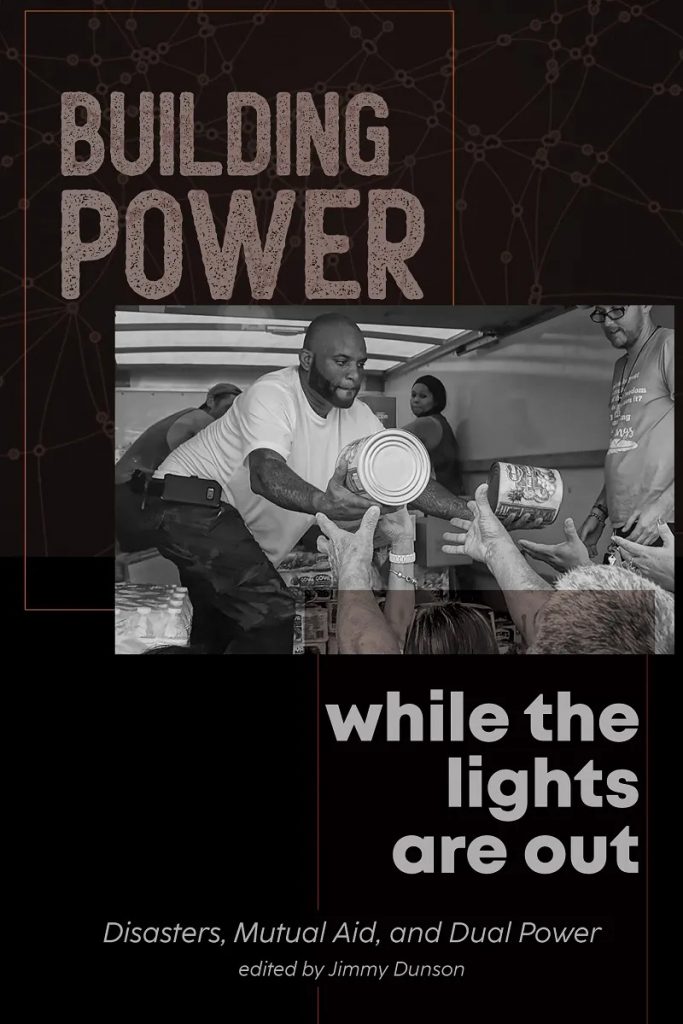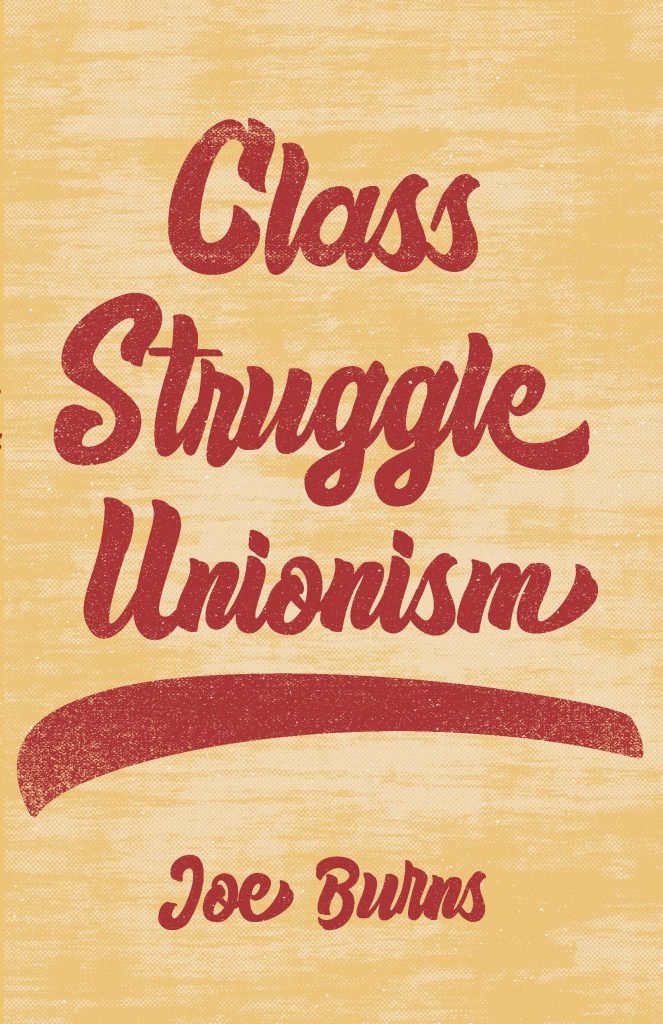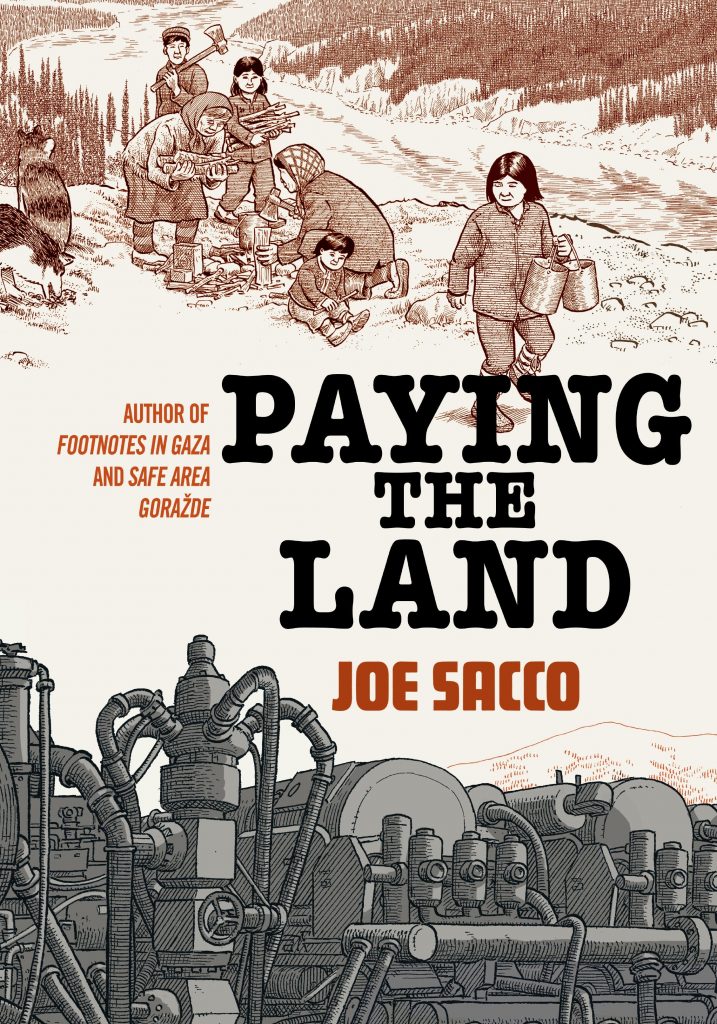Welcome to the Reading Roundup, a forum for ATX DSA members to share what they’ve been reading and how it’s informing their political education.
Building Power While the Lights Are Out: Disasters, Mutual Aid, and Dual Power
Edited by Jimmy Dunson

Building Power While the Lights Are Out: Disasters, Mutual Aid, and Dual Power, to use editor Jimmy Dunson’s own metaphor, is about cracks and seeds. Cracks in the foundations of systemic violence and the seeds we sow deep down in them like so many farmers hoping for rain. Equal parts memoir, technical manual, and poetry book, Building Power is not one singular work, but a collection of several essays compiled by the organizations and individuals who organize with and alongside Mutual Aid Disaster Relief. Each essay is different, linked by the common thread of people coming together in the face of catastrophe and violent repression to help and empower the working class.
I have worked alongside many of the comrades featured in the book, and I feel I should be upfront about that fact. There is not a single person cited who I do not believe has or would lay their lives on the line to protect another, and all of them have done so as far outside of and in opposition to the traditional capitalist structures of relief work as is feasible. What speaks to most of all, though, and what has informed my politics through reading Building Power, is the wealth of knowledge that emanates from every page.
For example, the essay “Occupy Sandy and the Ethics of Mutual Aid” by Siobhan Watters offers a detailed story of how the tools built by the Occupy movement in 2011 were repurposed for disaster relief as Sandy bore down on New York in 2012. Watters discusses how a constituent management software, CiviCRM, was used to gather survivors’ needs and volunteers’ abilities into a unified environment for efficient dispatch. They applied deep canvassing tactics that would be familiar to any DSAer to more efficiently help people in the immediate aftermath of the storm, often days or weeks before FEMA and the Red Cross even entered those neighborhoods. Further, much of the logistics and long-distance supply line work was undertaken by the Transport Workers Union of Philadelphia (TWU Local 234).
Watters’ essay is just one of many that can be found in Building Power. From Malik Rahim’s moving piece about the history of survival programs to Eleanor Goldfield’s prose about the many ways we have to express our humanity and build our collective liberation, there is a little something for everyone. May we all look to the lessons of our predecessors and build a brighter tomorrow together.
—Gumbo
Class Struggle Unionism
by Joe Burns

Joe Burns hits it out the park again with Class Struggle Unionism. Director of collective bargaining for the Association of Flight Attendants, his previous two books argued that for union workers to regain the strength we have lost, we must bring back the strike. Now Burns widens his focus from tactics to strategy.
Burns criticizes the conservative AFL-CIO through the 1980s that opposed immigrants, helped the CIA undermine worker movements in other countries, and distrusted social movements and socialists. Its successor as the dominant force in US unions, what he dubs “labor liberalism,” doesn’t come away any better. Starting mostly as college educated staffers without rank-and-file experience, they were an improvement in a few ways. They advocated progressive positions on social issues and more organizing.
Unlike the previous old guard though, they saw little need for even the veneer of democratic norms such as voting for leaders or whether to strike. They were more opposed than their predecessors to member control of unions and they advocate partnership with employers. They supported ostensibly positive movements such the Fight for $15 and workers centers, but these are often run as non-profits with boards of middle-class professionals unaccountable to workers. While opposing real strikes in the unions they head, labor liberals don’t hesitate to call completely symbolic strikes of Walmart or fast food companies with no vote by the workers.
Burns calls instead for a bottom-up unionism. The decision to strike is not easy and should only be made by the workers themselves. He points to long-time examples such as Labor Notes, Teamsters for the Democratic Union and the United Electrical Workers, but also to more recent inspiration like the illegal teacher strikes in 2018, the campaigns of Bernie Sanders and the enormous growth of DSA. If you’re wondering why your union doesn’t look like the Minneapolis Teamsters that led a general strike in 1934, Burns will help you get there.
—Joshua F.
Paying the Land
by Joe Sacco

Best known for groundbreaking comics journalism covering Palestine and Bosnia, Paying the Land sees Joe Sacco visit the Mackenzie River Valley to investigate the lives of its Indigenous people, the Dene, and the labyrinthine conflicts posed by extractive industry, the Canadian state, and the legacy of colonization and genocide.
Sweeping illustrations of past Dene generations engaged in their traditional ways of life are as breathtaking as the terrors of the residential schools are horrific, and the book is carefully paced to drive home just how foundational the last century of state violence was to priming the Northwest Territories for drilling, fracking, and mining. Interviewees voice wide-ranging, sometimes bitterly opposed perspectives on the path forward. Trauma, modernity, and ecological destruction present the Dene with dual challenges to survival as individuals and as a people, and while the outlooks of tribal officials, oil field workers, activists-turned-MPs, and young land protectors & water defenders often clash, no one underestimates the profound difficulty of healing their relationships with each other and the place they belong to.
Sacco is sharply attuned to observer effects, both how his presence tempers his subjects and how his perspective might distort their representation, and that sensitivity helps draw complex motivations and insights up from grander contexts, challenging simplistic narratives. It’s a skill that shows history leads not to ends but to entropy, its terrain shifting and fracturing as injuries compound. Held fast by their living memory of a life before capitalism, the Dene still continue to struggle toward a future beyond it.
—Mike C.
Interested in making a contribution to next month’s Reading Roundup? Send a 250-word blurb to redfault@austindsa.org!

